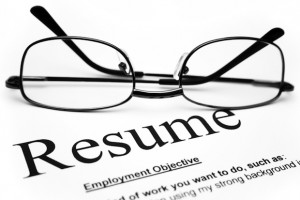 I recently read a blog post that suggested resumes may soon be a relic of the past. In the Forbes post, 2013: The Year of Social HR, the author points to trends indicating your Internet presence will be more important than your resume. The article states that “before you’re interviewed by a potential employer, expect the recruiting manager or hiring manager to check out one or more of the following sources about you: 1) the top ten searches on your name on either Google or Bing, 2) the number of Twitter followers you have and last time you tweeted, 3) the size and quality of your LinkedIn community, 4) the number and quality of recommendations you have on LinkedIn and 5) your Klout score.”
I recently read a blog post that suggested resumes may soon be a relic of the past. In the Forbes post, 2013: The Year of Social HR, the author points to trends indicating your Internet presence will be more important than your resume. The article states that “before you’re interviewed by a potential employer, expect the recruiting manager or hiring manager to check out one or more of the following sources about you: 1) the top ten searches on your name on either Google or Bing, 2) the number of Twitter followers you have and last time you tweeted, 3) the size and quality of your LinkedIn community, 4) the number and quality of recommendations you have on LinkedIn and 5) your Klout score.”
This begs the question of how you received the interest of the potential employer in the first place. Might it have been a resume? I certainly agree that a LinkedIn profile and online Web Portfolio can complement the traditional resume, but you’ll still need to tell a compelling story about your experience and expertise in the content of those online tools, especially at the executive and upper professional levels. How many executives are spending hours on social media, generating a following through entertaining tweets. And if they are, would your really want them running your operations?
I can see a strong social media presence being important for someone in marketing or advertising, but don’t you want your executives to be spending their time contributing to bottom line growth, running the company or their division? Even if you’re fresh out of college and just starting your career, do you really believe a 140 character tweet will get you in front of a hiring manager? And whether social media will completely replace traditional marketing as far as yielding ROI is not even up for debate at this point, it doesn’t and probably never will. Social media is just another arrow in the quiver of marketing managers.
Remember in the mid to late 90’s when there were dire predictions of Apple’s demise? The last time I checked, it remains an industry leading, technology powerhouse and has not gone the way of the dinosaurs. So too will resumes, in some form or another (LinkedIn, Web Portfolio’s, Online Resumes), always be with us. There’s no better way to share you skills and expertise.
~Linda


